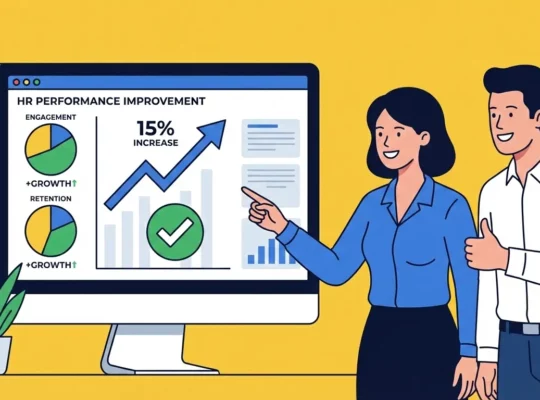Summary
This article explores the common questions employees ask during a merger, providing a comprehensive guide for HR professionals, corporate managers, and other stakeholders to address these concerns effectively. Topics covered include job security, compensation changes, benefits impact, reporting structure, and communication strategies.
Table of Contents
- Introduction
- Overview of Mergers and Acquisitions
- Common Employee Questions
- Impact on Customers and Vendors
- Communication Strategy
- Preparing for Employee Concerns
- Final Thoughts
- FAQ
Introduction
When companies undergo mergers and acquisitions, employees often find themselves facing a wave of uncertainty. The questions employees ask during a merger are crucial to address, as these inquiries can significantly impact morale and productivity. Whether you are an HR professional, corporate manager, business consultant, or part of the management team, understanding and addressing these concerns is essential. This comprehensive guide, brought to you by Review.jobs, aims to shed light on the common questions employees ask during a merger and provides best practices for addressing them. With clear communication and a strategic approach, you can help your team navigate this challenging transition smoothly.
Overview of Mergers and Acquisitions
Mergers and acquisitions (M&A) involve the consolidation of companies or assets. A merger typically combines two equal companies, while an acquisition usually involves a larger company taking over a smaller one. During these processes, addressing employee concerns is critical to ensure a smooth transition and maintain employee retention and morale.
Definition and Differences Between Mergers and Acquisitions
In a merger, two companies agree to unite and form a new entity, often resulting in shared leadership and resources. In contrast, an acquisition occurs when one company purchases another, often leading to significant changes in the acquired company’s structure and operations. Both scenarios can lead to employee uncertainty and numerous questions.
Importance of Addressing Employee Concerns
During mergers and acquisitions, employees face a range of uncertainties, from job security to changes in benefits and reporting structures. Addressing these concerns proactively can prevent productivity issues and maintain a positive work environment. The purpose of this article is to provide a comprehensive guide on common employee questions and best practices for addressing them.
Common Employee Questions
Understanding and addressing the common questions employees ask during a merger can help mitigate anxiety and maintain a smooth transition.
Job Security and Role
- Will I still have a job? Employees often worry about their job security during a merger. Clear communication about job retention is essential.
- Will my position be eliminated? Provide transparency regarding potential layoffs or position eliminations.
- If my position is eliminated, will I receive a severance package? Outline severance package details for affected employees.
- Will my role and responsibilities change? Clarify any changes in roles and responsibilities to reduce uncertainty.
- What will happen to my department or project? Inform employees about the future of their departments and projects.
Compensation and Benefits
- Will my compensation change? Address concerns about potential changes in salary or wages.
- Will my pay change (base compensation, bonus, commission, etc.)? Provide information on any adjustments to compensation structures.
- What will happen to my stock (options)? Explain the status of employee stock options during the merger.
- What will happen to my other compensation? Discuss other forms of compensation, such as bonuses or commissions.
- How will my benefits be impacted (health, 401k, etc.)? Detail any changes to employee benefits packages.
- What will happen to my PTO/Vacation time? Clarify policies regarding paid time off and vacation time.
- How does the acquiring company handle PTO/Vacation/Sick pay? Explain the acquiring company’s policies on paid time off.
Reporting and Structure
- Who will I report to? Inform employees about any changes in reporting lines.
- Will I report to a new manager or department? Provide details on new management or departmental assignments.
- What will the new organizational structure look like? Share information about the new organizational hierarchy.
- Will my responsibilities change? Clarify any changes in job responsibilities.
- How long will the integration take? Offer a timeline for the integration process.
Relocation and Work Environment
- Will I need to relocate? Address concerns about potential relocation requirements.
- Will our office move? Inform employees about any planned office relocations.
- Will I have to commute farther? Discuss the impact on employees’ commutes.
- Will my office stay open? Provide information about the future of current office locations.
Company Culture and Policies
- What is the culture of the new company and will it be a fit for me? Describe the new company’s culture and values.
- Will our culture change? Discuss potential changes to the company’s culture.
- What will the new company culture be like? Offer insights into the new organizational culture.
- What policies and procedures will be changing? Inform employees about changes in company policies.
- What are the new owner’s goals, values, expectations? Share the new leadership’s goals and expectations.
Training and Support
- Will the new owner train us on how they want things done? Explain the training programs for new procedures.
- What support will we receive from the new owner? From the acquiring staff? Detail the support systems in place for employees.
- Will there be a transition period that will impact implementation timeframes? Provide information about the transition period and its impact.
- Who should we contact if we have questions? Designate points of contact for employee inquiries.
Impact on Customers and Vendors
Understanding the broader impact of a merger on customers and vendors is also crucial.
Customer Impact
- How will the deal impact customers? What differences will they see? Explain the expected changes for customers.
- How are customers being notified about the deal? Describe the communication strategy for customers.
- What do I say to customers who call with concerns due to the deal? Provide guidance on handling customer inquiries.
Vendor Relations
- Will we still be dealing with the same purchasing agent(s)? Inform employees about changes in vendor relations.
- What will change and what will stay the same? Clarify the continuity of vendor relationships.
Communication Strategy
A solid communication strategy is essential for managing the transition effectively. Implementing best practices for supporting employees during mergers and acquisitions can maintain morale and productivity throughout the transition.
Importance of Communication
Keeping employees informed helps maintain morale and productivity, preventing misinformation and rumors.
Best Practices for Communication
- Be open and truthful; if answers are not available, provide a timeline for when they will be. Honesty builds trust and credibility.
- Be clear and concise with communications to avoid misinterpretations. Ensure messages are easy to understand.
- Be timely and try to stay ahead of the rumor mill with a communication calendar. Schedule regular updates.
- Be empathetic and caring, recognizing that employees’ livelihoods are affected. Show understanding and support.
- Implement flexible dialogue methods such as company meetings, one-on-ones, Q&A sessions, and appointing a point person to field questions. Encourage open communication.
Preparing for Employee Concerns
Proactive preparation can make a significant difference in managing employee concerns.
Understanding Employee Concerns
Acknowledging employees’ value and concerns builds trust and eases the transition. Conducting survey questions for employees can provide valuable insights into their concerns and help tailor communication strategies effectively.
Role of Legal and HR Professionals
Ensuring you are well-prepared to provide accurate information by seeking legal advice if necessary. An experienced attorney can provide strategic legal guidance throughout the merger process.
Final Thoughts
Addressing the questions employees ask during a merger is crucial for a smooth transition. By understanding common concerns and implementing effective communication strategies, companies can maintain morale and productivity during this challenging period.
FAQ
What are the most common questions employees ask during a merger?
Common questions include concerns about job security, changes in compensation and benefits, reporting structure, relocation requirements, and company culture.
How can companies address employee concerns during a merger?
Companies should provide clear, honest, and timely communication, be empathetic, and offer support through various channels such as meetings and Q&A sessions.
Why is it important to address employee questions during a merger?
Addressing employee questions helps maintain morale, prevents misinformation, and ensures a smoother transition, ultimately supporting productivity and employee retention.
How can Review.jobs help during a merger?
Review.jobs offers employee review management solutions that can improve employer branding, helping companies communicate effectively and maintain a positive work environment during mergers and acquisitions.





